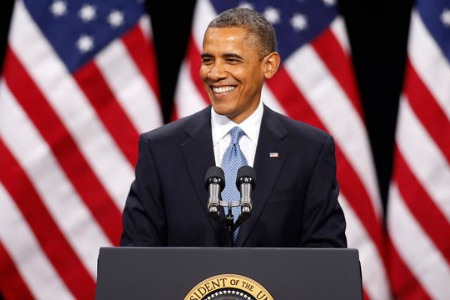
On Friday, the President will host a Father’s Day luncheon in the State Dining Room to celebrate the importance of strong families and mentorship. He will be joined by fathers and their children as well as students and leaders from the Becoming a Man (BAM) program at Hyde Park Academy in Chicago, many of whom the President met in his February visit to the school.
FRIDAY
11:30AM THE PRESIDENT hosts a Father’s Day Luncheon
State Dining Room
Additional Background:
· The Father’s Day luncheon will be an opportunity to continue the national conversation that the President started early in his first term around the vital role fathers have in their families and their communities.
· Following the luncheon, students in the BAM program will participate in an off the record discussion and mentorship roundtable with Administration staff. This meeting is a follow up from the President’s private discussion with sixteen students enrolled in BAM program in February following the State of the Union. The Chicago visit underscored the President’s proposal to build ladders of opportunity for America’s children and families. This includes supporting the critical role fathers play in enhancing the intellectual, emotional, and financial well-being of their sons and daughters and the key function mentors play in their communities.
Background on Becoming A Man Program (B.A.M.)
B.A.M., founded by the non-profit Youth Guidance, is a school-based counseling, mentoring, violence prevention and educational enrichment program that promotes social, emotional and behavioral competencies in at-risk male youth. B.A.M.’s curriculum addresses six core values: integrity, accountability, self-determination, positive anger expression, visionary goal-setting and respect for women, as each value relates to personal and academic success.
Results of the University of Chicago’s Crime Lab’s rigorous study of the program found that B.A.M. participation significantly increased school engagement and performance and increased future graduation rates by 10-23%. B.A.M. participation also reduced violent-crime arrests by 44%, weapons crime and vandalism by 36% and the likelihood of attending school in a juvenile justice setting by 53%.